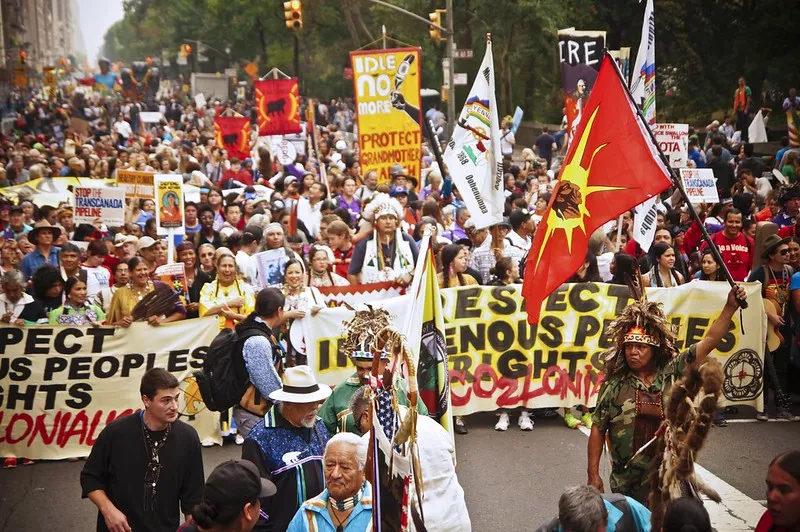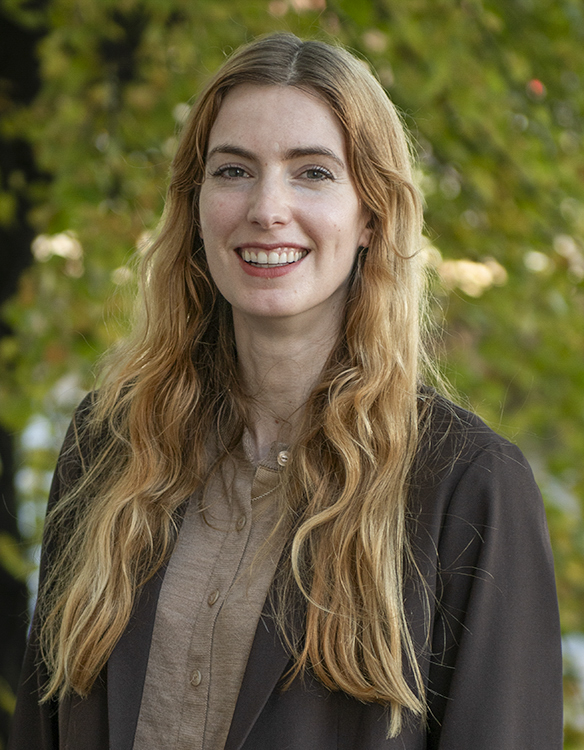Indigenous inclusion for a more democratic global climate regime

Disclaimer: Opinions expressed in this commentary are those of the authors and do not necessarily represent the institutional position of International IDEA, its Board of Advisers or its Council of Member States.
World leaders will conclude the first Global Stocktake (GST) at COP28, a chance to comprehensively assess progress made since the Paris Agreement and an opportunity to shine light on the inclusion of Indigenous peoples. Key to this evaluation will be the Local Communities and Indigenous Peoples Platform (LCIPP), a body enshrined in the Paris Agreement to empower the knowledge, practices and technologies of local communities and Indigenous peoples. At COP26, representatives from the seven UN Indigenous socio-cultural regions were able to engage first-hand with governments as knowledge holders, rather than stakeholders. The result was a strong signal to reorient policy towards nature-based solutions and the active involvement of Indigenous peoples in climate action. So how are we doing?
A pending issue is the status of LCIPP. Though it was created precisely because Indigenous knowledge is widely recognized as central to addressing the climate crisis, benefitting climate impact assessments, resilience, biodiversity conservation and disaster preparedness, the body has little power to impact decision-making. A key obstacle is that the LCIPP fails to acknowledge the role of colonialism, and it has been accused of mirroring rather than counteracting the larger institutional barriers and power inequalities in the UNFCCC process. It also fails to heed political and cultural considerations when integrating traditional knowledge, leading to it being minimized and distorted when assimilated into “Western science” models. Further, the LCIPP does not hold the status of a negotiating body and cannot enforce any binding obligations on the Parties, resulting in the indirect representation of Indigenous peoples through states. The impact of the remaining pathway to participation, statements and recommendations made by LCIPP during negotiations, is limited, dependent upon an old hierarchy and inequalities that may be present in the relationships with those states.
Indigenous communities lighting the way
Regardless of their official status at COP, however, Indigenous groups continue to forge a path ahead. Although facing high levels of violence and repression, Indigenous activists keep fighting for more progressive responses to climate change and demanding government action on issues from tackling institutionalized racism to ensuring political representation. In the past year, Indigenous communities have successfully led governments to evaluate economic reliance on fossil fuels, improve inclusion of Indigenous groups in decision-making, and rein in harms caused by industrial operations in Indigenous territories. This tireless activism has defied structural disadvantages and marginalization to tackle powerful interests and usher in historic breakthroughs and large-scale change.
In August, Ecuadorians voted in two successive referenda to end new and pre-existing oil extraction in the Amazon, making Ecuador the first country in the world to determine the limits of resource extraction by referendum. The vote came after years of petitioning the government to hold a referendum by Yasunidos, a group of environmental activists and Indigenous leaders and, subsequently, campaigning to mobilize voters.
Acquiring democratic legitimacy
Climate action does not stand a chance unless it can claim democratic legitimacy. Currently, COP is threatened by charges of perpetrating “carbon colonialism,” sustaining or exacerbating existing power imbalances that risk the very Indigenous livelihoods, food gathering practices, and lands that are pivotal to increasing our chance of tackling the climate disaster and protecting biodiversity.
As the political power of Indigenous peoples grows domestically, we can expect this to translate to greater influence on the global scene. However, this progression requires active support. First, Indigenous peoples should be offered a seat at the negotiating table, which implies recognizing them as a party to the Convention, or assurances of establishing legally binding mechanisms among the existing parties.
Second, it is essential to prioritize the right of Indigenous peoples to self-determination, rather than relying on national governments as interlocutors. Increased support to international advocacy groups such as the International Work Group for Indigenous Affairs, the Indigenous Environmental Network and the Saami Council can directly strengthen the voices of Indigenous communities at the international level.
The COP28 presidency has declared that special attention will shine on the inclusion of Indigenous peoples, women and youth. That is a promise of democracy that is yet to be fulfilled.





